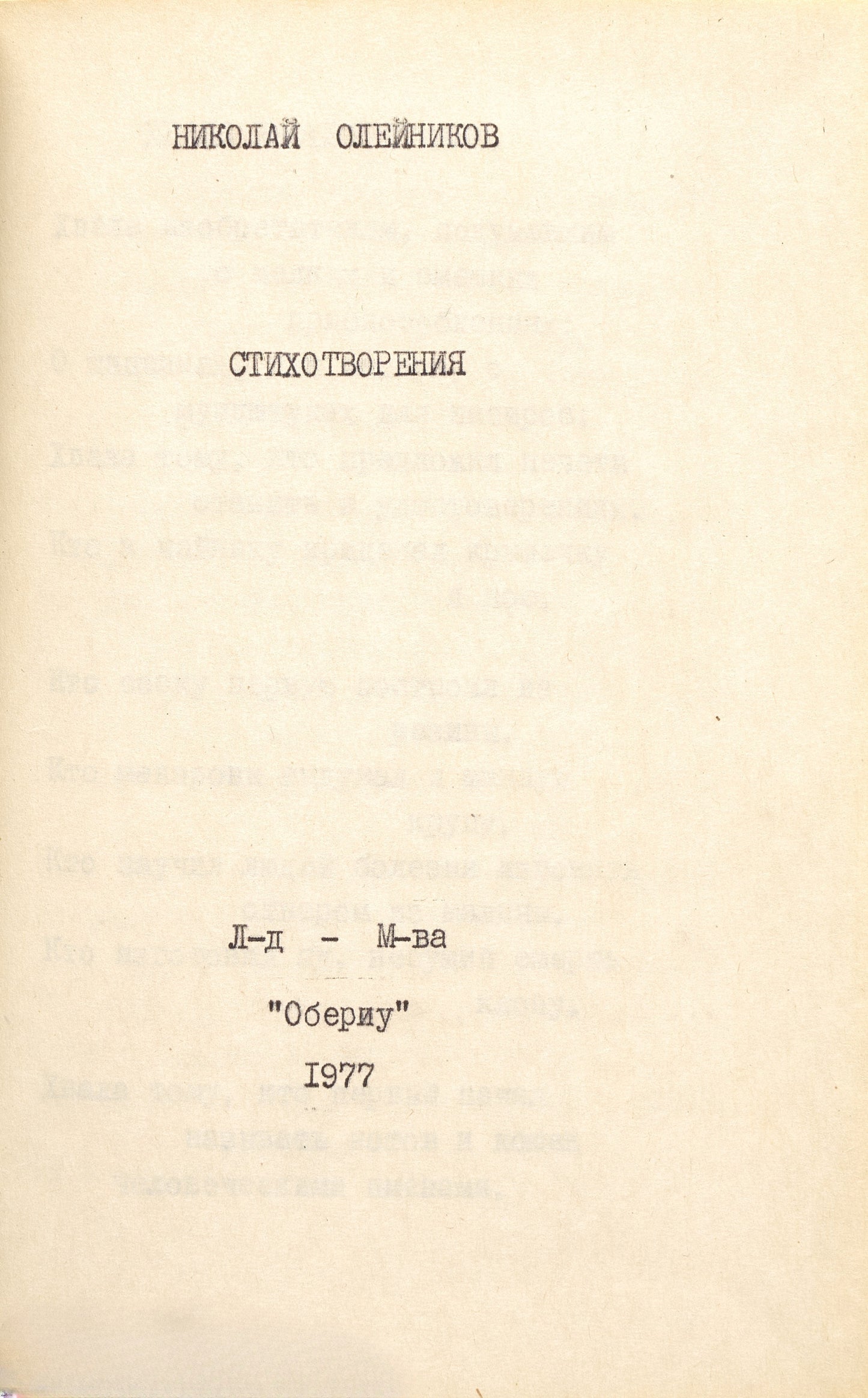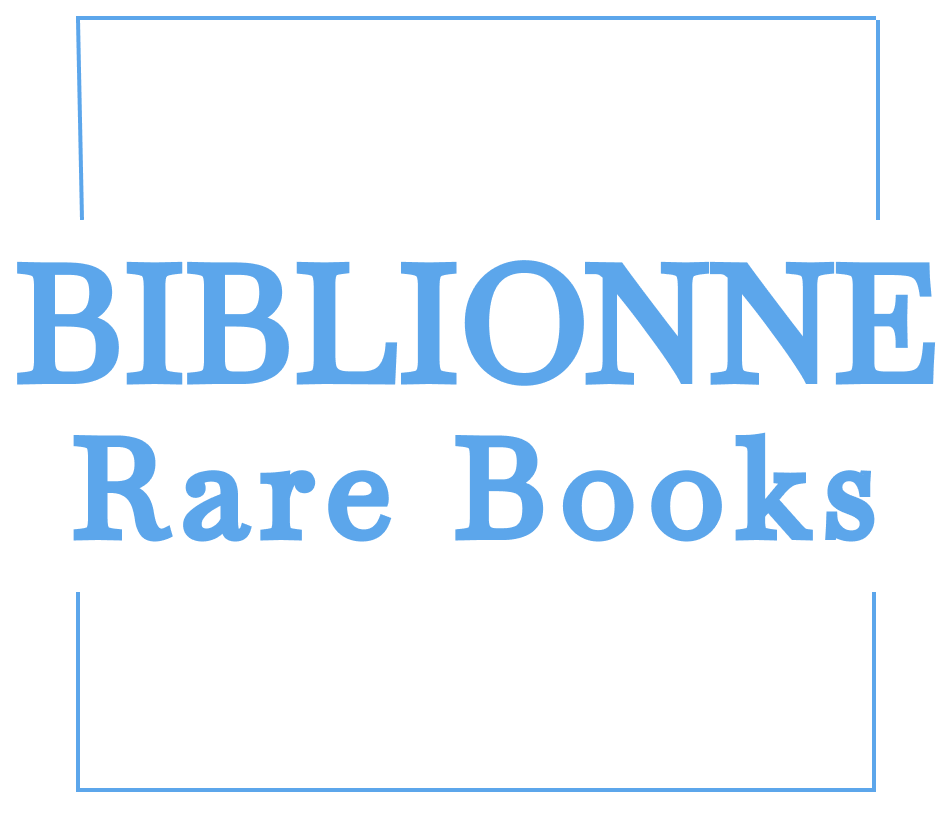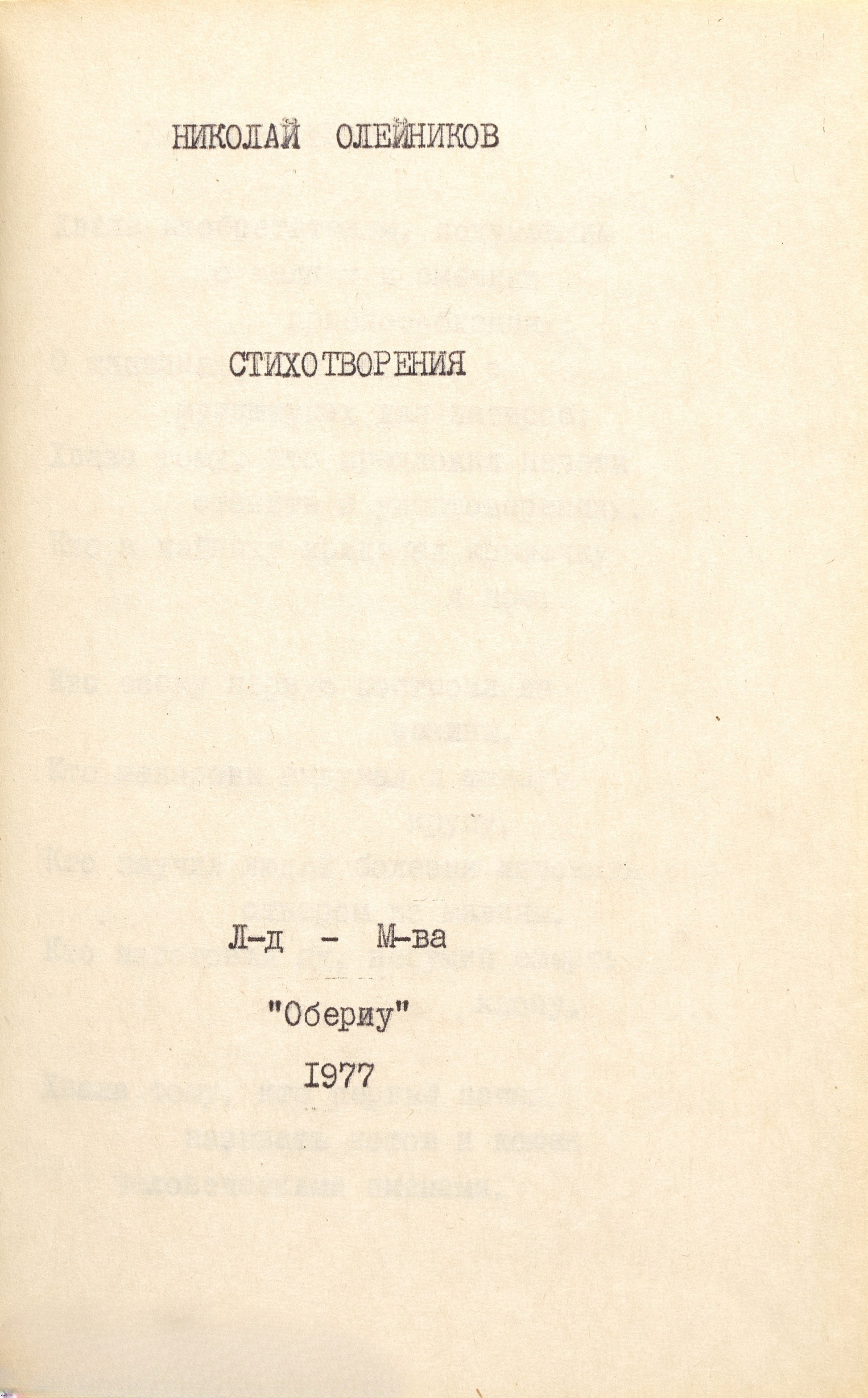Oleynikov, Nikolay
Poems. Typescript. Rare samizdat edition featuring poems by one of the most controversial poets associated with the OBERIU group.
Poems. Typescript. Rare samizdat edition featuring poems by one of the most controversial poets associated with the OBERIU group.
Couldn't load pickup availability
Oleynikov, Nikolay [Poems]. Stikhotvoreniia. Typescript.
L-d – M-va, “Oberiu”, 1977.
8vo, [1], 1-94, [1], 95-96 pp.
In contemporary handmade boards.
In good condition, lightly rubbed, minor soling to p. 69-70.
Probably, the first or second copy. Rare samizdat edition featuring poems by one of the most controversial poets associated with the OBERIU group.
Nikolay Oleynikov (1898–1937) was a poet, playwright, and editor closely associated with the avant-garde OBERIU (Union of Real Art) movement, although he was not an official member due to his affiliation with the Bolshevik Party. Born into a Don Cossack family, his early life was fraught with conflict, including a narrow escape from execution by the White Army. There were even rumors that he may have killed his father due to political differences. Oleynikov was one of the key figures in Soviet children's literature, co-founding and editing the prominent Leningrad magazines 'Yozh' ('Hedgehog') and 'Chizh' ('Siskin'). During his lifetime, Oleynikov was primarily known for his children's books about the Civil War. His poetry appeared only once, in 1934, when three poems were published in the magazine ‘30 Dnei’. This publication caused a scandal and almost led to his expulsion from the party. Following this, he did not attempt to publish more poetry, though some believe he may have done so anonymously. Arrested during the Great Purge as a ‘Japanese spy’, Oleynikov was executed, and his books were subsequently banned.
Interestingly, despite everything, Oleynikov’s poetry - considered among the 'darkest' and 'most philosophically uncompromising' in the Russian avant-garde - was well-known among his contemporaries. Even the prominent composer Dmitri Shostakovish planned to write a comic opera based on Oleynikov’s poem ‘The Carp’. Furthermore in 1960-1970s when the OBERIU group was reopened in the USSR the interest among wide readers started exactly from the prose by Daniil Kharms and from the poems by Oleynikov. At that time his poems were circulated in samizdat (underground press) and were published in official periodic from time to time since 1964. Oleynikov’s first book of poetry appeared in Bremen in 1975 while in the USSR the first book was published in 1988.
This typescript contains 49 poems written between 1926 and 1934, including significant works like 'The Carp' and 'Cockroach'. We compared this typescript with the Bremen edition and found that, while the list of poems is identical (though the Bremen edition includes 11 additional poems), the order differs. It is also known that the Bremen edition was compiled from unknown sources, most likely based on samizdat materials. Oleynikov's samizdat was based on copies made by his wife after her exile from Leningrad in 1937, which she distributed to trusted individuals. These copies were made from the original manuscripts, which were eventually confiscated.


